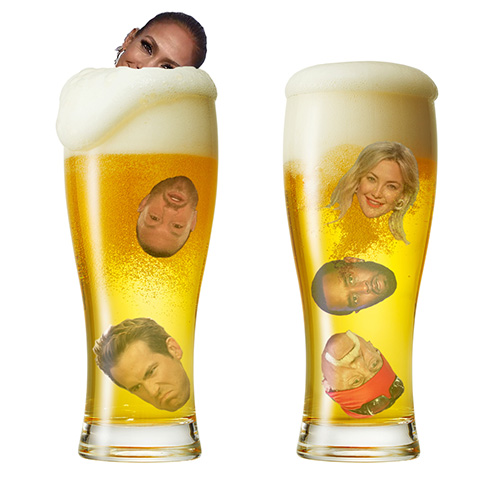

Hulk Hogan has a vision, and that vision is a beer. Real American Beer. And that beer is covered with a lot of American flags. That beer, Hogan says, is for “Republicans and Democrats, doesn’t matter what sex you are, doesn’t matter what your race is, where you’re from, or what you believe in.”
Hogan, the stage name of former professional wrestler Terry Bollea, is a well-known uniter. He has united with World Wrestling Entertainment executive and accused sex trafficker Vince McMahon to prevent wrestling talent from unionizing. He has united with tech oligarchs to bury online tabloids under SLAPP litigation. Most recently, Hogan united Republicans and not at all with Democrats at the 2024 Republican National Convention. (There are also some indications that it very much does matter to Hogan what your race is.)
And yet, the scandal here isn’t that Hogan’s taste in associates and two-faced rhetoric promote drinking. It’s that Hogan is using the promotion of alcohol consumption to milk his fans. Hogan isn’t celebrating Real American Beer because he wants to unite anybody. He likely does not even care about uniting Republicans. As a majority owner of the alcohol brand, he wants to pair it with deeply insincere unity language to get fans, partisans, and people who are just really into flags to pipe more money into his pocket. Unlike with what people think of as a typical celebrity booze endorsement, the product here isn’t the beer. The product is majority-stake owner Hulk Hogan.
He is far from alone from selling himself in the guise of a tipple. In the past 10 years, alcohol brands have become a default way for celebrities to cash in on the limelight. According to market research firm IWSR, “celebrity whiskies grew by 8% in volume, compared to 2% for the whisky [sic] category as a whole. … celebrity rums grew 11% – majorly outperforming a category that declined by 4%.”
This results in astonishing windfalls for already very wealthy people. Unavoidable actor Ryan Reynolds sold his Aviation Gin label to Diageo for $610 million. MMA celebrity Conor McGregor (himself a notable uniter) sold his stake of a whiskey brand for a similar $600 million sum. This is all part of a well-defined strategy. As CNN reports:
Michael Yanover, head of business development for powerhouse Creative Artists Agency, told CNN that celebrities who create spirit brands generally hope to eventually sell to “one of the bigger holding companies.”
Having equity in a company is more appealing than an endorsement: If the brand sells, it’s a cash payout, Yanover said.
This has blowback potential, both obvious and subtle. CNN notes that Diageo-owned Ciroc was left holding the bag from its relationship with Sean Combs after the latter faced sexual assault allegations. Meanwhile, actor and singer Jennifer Lopez had to loudly walk back her public image as a teetotaler to properly hawk her new hard seltzer.
The dead-eyed cynicism may be familiar to the public health community, but fans remain sufficiently enthralled. IWSR notes that these celebrity endorsements, or maybe incarnations—inbibations?—are most appealing to young drinkers, who are more interested in exploring ranges of products. This makes the celebrity involvement a signpost for this vodka over that one, this mezcal over that one, or this Qream over… well, thank God, there was only ever one Qream and it’s gone now.
At the same time, there are fewer young drinkers than in the past. Whether that’s because of a revulsion to the cynicism, soaring rates of mortality among those who do drink, or low income and student debt making it difficult to justify spending premium rates to maybe get breast cancer from Kate Hudson’s alkaline vodka, youth engagement with alcohol is ebbing. How it will affect this strange, venture capital-styled celebrity market, remains to be seen. There may be no effect at all, because these brands were never about the kids, or the fans, or the consumers. They are about the famous people, and all the extra money that could accrue to them.
Published on: October 1, 2024